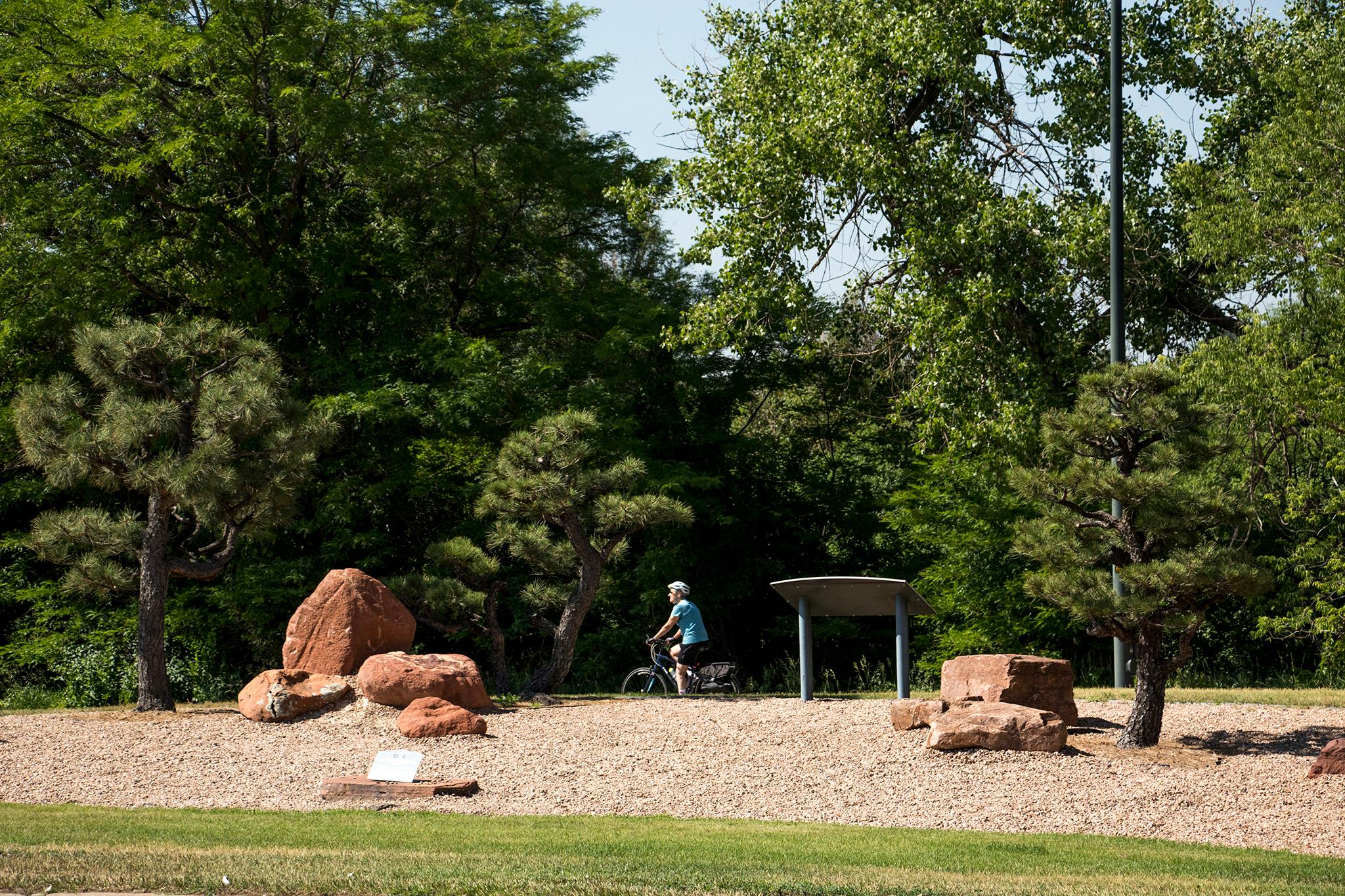Denver voters will decide this November whether they want to pay more sales taxes to fund parks, trails and open space.
The Denver City Council on Monday approved the question, sending it to the ballot. The proposal was for a 0.25 percent tax. That's 25 cents for every $100 spent on goods and services in Denver.
The bill was sponsored by nine of 13 council members, and it attracted support from more than a dozen people who said that the city's parkland was a crucial resource that has been strained by a development boom.
The idea drew criticism, though, from housing advocates who said the city should focus on other priorities, and who asked whether the proposal would speed up gentrification in some neighborhoods.
The council voted 12-1 to put the tax hike on the ballot, with Councilman Albus Brooks dissenting.
What would it do?
The measure would generate about $46 million in 2019, an increase of about 63 percent for parks and recreation. (For comparison, the city currently dedicates about $15 million per year for its affordable housing fund.)
If voters approve, the proposal would increase the sales tax on purchases in Denver from 7.65 percent to 7.9 percent. (That includes RTD taxes, state taxes and more.)
The money would go toward new land purchases; improvements at parks; restoration of waterways; planting and maintenance of trees; and maintenance of open spaces.
Currently, Denver spends about $114 per resident on parks, compared to about $175 for New York City, $200 for Raleigh and more than $250 for Seattle, according to a presentation about the bill.
What did the public say?
"Overall, we support continued investment in the parks system," said Hilarie Portell, a board member for the housing advocacy group All In Denver. "What troubles us is the size and scale of this tax during an unprecedented time in our city."
She said that the tax could reduce voters' appetite for other taxes. (It will share the ballot, for example, with a proposal for another hike of the same size to support housing and mental health services. Also on the ballot are sales tax hikes for college affordability, healthy food for kids and economic development incentives.)
All In Denver wanted to see a smaller tax increase; a strategy to reduce the displacement of residents from neighborhoods that get improvements; and a "sunset" that would end the new tax if a future council doesn't extend it.
Jesse Parris, a candidate for council, said it was hypocritical to improve parks while the city's camping ban prevents people from using blankets and other shelter in public spaces.
"How is this going to benefit us if we can't even occupy these parks?" he said.
In contrast, speaker Anne Elizabeth said that the tax would help a parks system that is under "extreme stress" from the city's rapid development.
"By making investments today, we can avoid more costly problems in the future," said Wade Shelton, representing The Trust for Public Lands.
Jeff Shoemaker, whose father was essential in creating the city's greenway system, said it was a "historic, significant" evening that was a decade in the making. Denver is the only metro county that doesn't have a dedicated parks funding source, he said.
“It is my humble opinion, that if you give the voters the chance, they will respond strongly and overwhelmingly with a 'yes' vote," said Shoemaker, executive director of of The Greenway Foundation.
What did city council say?
Councilman Paul López said he wanted to address the issue of equity. "Denver's very lopsided in terms of its parks system -- where the acreage is and where it's not," he said. He asked how the city would guarantee that new parks are distributed fairly.
Council President Jolon Clark, the prime backer of the proposal, said that he had equity in mind all along. His district in south Denver is a "tale of two cities" that he hopes to address, he said.
"The problem is that we struggle to keep up with our parks and deliver on our parks," he said. López agreed that the first step toward equity was funding parks.
Clark tried to answer gentrification concerns, saying that skipping parks and other improvements isn't an answer to displacement. Instead, he said the city has to tackle gentrification at a larger scale.
And he said that an expiration date on the new funding could limit the city's ability to plan parks. "The day that every single person in this city has a high-quality, world-class park that they can walk to safely ... then I'll be the first one in line to say, 'Hey, let's make a change,'" he said.
Councilman Kevin Flynn introduced a successful amendment that will give the council more oversight: The elected officials will hold public hearings and take votes on five-year plans for the spending of the money.
Flynn added that he had "anxiety" because a sales tax was "the most regressive choice we can use," meaning that it impacts low-income households relatively harder.
Clark said that the sales tax was simpler and more established than other options, such as fees on developers. It would generate the minimum amount of money needed to catch up on parks needs, he said.
Councilman Albus Brooks was the sole "no" vote. He pointed out the city's need for nearly $2 billion for sidewalks and bike infrastructure.
"We’re far behind in parks and we know that," he said. "But I’m really struggling by how far behind we are in mobility and housing and some of those other issues."
A survey in his northeast Denver district, he said, had showed that a parks tax had significantly less support than the competing housing measure. And he worried that the measure would die "because of a lack of preparation," he said, calling for a "much more inclusive process."
The city is "just piling up on this ballot," he said.












